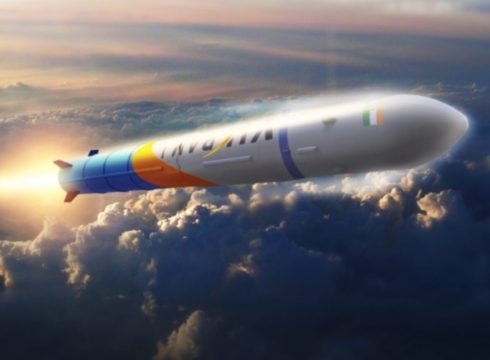SUMMARY
Hyderabad-based Skyroot made headlines for becoming the first Indian company to test-fire an upper stage rocket engine in August
The rocket engine will be tested at Indian Space Research Organisation (ISRO) facilities before powering Vikram rockets by December 2021
Besides test firing the upper-stage rocket engine, Skyroot also demonstrated India’s first 100% 3D-printed bipropellant liquid rocket engine injector
Inc42 Daily Brief
Stay Ahead With Daily News & Analysis on India’s Tech & Startup Economy
Indian spacetech startup Skyroot Aerospace successfully test fired a solid propulsion rocket engine named Kalam-5, the first of its five Kalam-series rocket engines.
Founded by former ISRO scientists, Pawan Kumar Chandana and Naga Bharath Daka, Skyroot builds small satellite launch vehicles (SSLV) for small satellites and also boasts of being the first Indian company to successfully test fire an indigenous rocket engine.
The Hyderabad-headquartered startup, backed by Curefit cofounders Mukesh Bansal and Ankit Nagori, claims to have designed the Kalam-5 engine using a carbon composite case and a more advanced version will be built and tested at Indian Space Research Organisation (ISRO) facilities before powering its Vikram rocket by December 2021.
Skyroot made headlines for becoming the first Indian company to test-fire an upper stage rocket engine. The startup, which was selected in Inc42’s list for 30 startups to watch in August this year, is developing launch vehicles (rockets) to provide affordable orbital launch service to the satellites of its customers. Customers pay for this launch service in proportion to their satellite mass.
“Kalam-5 uses 15 different advanced materials, nine different manufacturing processes, and has zero moving parts,” added Chandana, the CEO of Skyroot.
Besides test firing the upper-stage rocket engine, it also demonstrated India’s first 100% 3D-printed bipropellant liquid rocket engine injector, which as compared to traditional manufacturing, reduced the overall mass of space vehicles by 50%.
The Kalam solid propulsion engine was first tested at a Solar Industries test facility in Nagpur on December 22. The ammunition manufacturer and defence contractor is a partner and investor in Skyroot.
“This is a subscale version of our third stage KALAM 100 motor. This demonstrates our solid propulsion tech and the same tech will be used in the three solid stages of Vikram 1 launch vehicle which will test-fired next year in ISRO facilities,” Daka, cofounder and COO, told ET.
This year, the Indian government has opened the space sector for private players to participate and approved the formation of the Indian National Space Promotion and Authorisation Centre (IN-SPACe), which will promote private-public partnerships for spacetech in India.
An independent nodal agency under the department of space (DoS), IN-SPACe has been tasked with examining the extent to which private players can contribute to the space sector, across a range of functions such as establishing ground stations to satellite constellations, to specialised sensors and devices to providing applications and services for spacetech operations.
Note: We at Inc42 take our ethics very seriously. More information about it can be found here.


